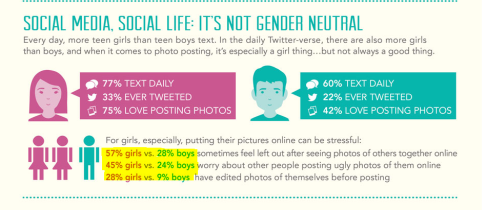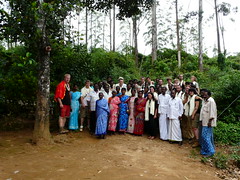Social Media and Gender
This picture is taken from the latest research report Social Media, Social Life: How Teens View Their Digital Lives from Common Sense Media’s Program for the Study of Children and Media. They surveryed over 1,000 13- to 17-year-olds nationally to understand how they perceive social media (like Facebook and Twitter) affects their relationships and feelings about themselves.
I have just read the headline areas which cover a number of different topics, from wanting time ‘unplugged’ to preferring face to face conversations however the area that particularly struck me from a youthworkers perspective was the bit I’ve highlighted in relation to young womens feelings / thoughts concerning social media.
I hadn’t really thought about social media in the context of gender and this info graphic I think is essential for Youthworkers. (along with the others produced on the website).
I think there can be an assumption by youth workers that social networking and online relationships are happening ‘elsewhere’ (as in not in reality, not on the ground) and therefore aren’t important compared to the actual face to face activity or work that is happening. However so much of a young persons life now (including parents) is online that it is essential Youth Workers understand what is happening in this area and include it in their curriculum. And the point raised for me by the first picture is what are we doing for young women in this area? How are we supporting them with their thoughts and feelings in relation to what is posted, especially photographs. I’d be interested to hear about youthworkers who are exploring this in their local youth groups, and what they / you are doing to support young people in managing and living ‘online’?








